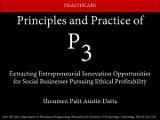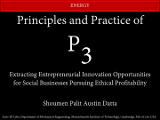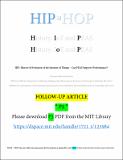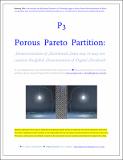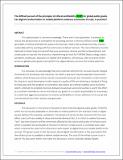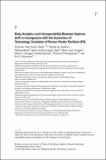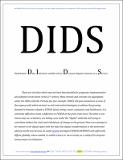| dc.contributor.author | Datta, Shoumen | |
| dc.date.accessioned | 2020-02-29T21:04:11Z | |
| dc.date.available | 2020-02-29T21:04:11Z | |
| dc.date.issued | 2020-02-29 | |
| dc.identifier.uri | https://hdl.handle.net/1721.1/123984 | |
| dc.description | This essay is neither about focus (see page 39) nor about any target audience. It is a haphazard discussion of approaches to increase access to global public goods, in a manner that the economics of technology is not a barrier but a catalyst through convergence of non-formulaic entrepreneurial innovation. This essay is supposed to be off the beaten path, to be read on the unplanned journey on the road not taken.The content of the essay aspires to inform that tools and data related to the affluent world are not a template to be “copied” or applied to systems in the remaining (80%) parts of the world which may be under economic constraints. We need different thinking that resists the inclination of the affluent 20% of the world to treat the rest of the world (80% of the population) just as a market. The 80/20 distribution evokes the Pareto analogy in this essay. | en_US |
| dc.description.abstract | Unsustainable and Misaligned Economics of Technology triggers a Porous Pareto Partition Between the Haves and the Have Nots: Can Democratization of Distributed Data act as a Catalyst for the Dissemination of Digital Dividends? | en_US |
| dc.language.iso | en | en_US |
| dc.rights | Attribution-NoDerivs 3.0 United States | * |
| dc.rights.uri | http://creativecommons.org/licenses/by-nd/3.0/us/ | * |
| dc.subject | Data, Analytics, Artificial Reasoning, Platforms, Sensors, Artificial Intelligence, Economics of Technology, Knowledge Graph, Materials Science, Halicin, Artificial Learning Tools (ART), Machine learning (ML) | en_US |
| dc.title | P3 - Porous Pareto Partition | en_US |
| dc.type | Article | en_US |
| dc.contributor.department | Massachusetts Institute of Technology. Auto-ID Laboratory | |

